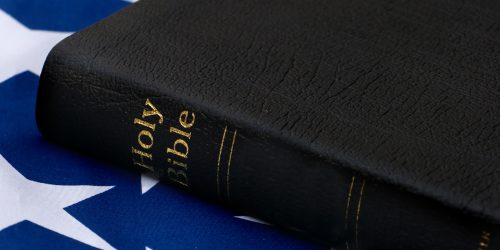
I saw there are some states that are trying to require posting the Ten Commandments in public schools. Is this a good thing and is it legal?
Over the years there have been states that have tried to incorporate the Ten Commandments into the classroom. Most recently, there is a new Louisiana law requiring the display of the Ten Commandments in all public-school classrooms, making Louisiana the first state to have such a requirement in over 40 years.
Advocates of the Louisiana law argue that the posting of the Ten Commandments has historical significance as a basis of some of our current laws, such as the laws against killing.
However, laws like this that try to bring religion into the public-school setting are filled with legal and religious liberty issues that make the law troubling and likely unconstitutional.
First, courts are likely to find that this law violates the establishment clause. The establishment clause says that Congress can “make no law respecting an establishment of religion.” By a state requiring religious documents to be placed in classrooms, the state is in effect endorsing religion. This could have the effect of making students who do not adhere to mainstream Christianity feel isolated and othered. This type of religious coercion from the state is something the establishment clause is designed to protect against.
In fact, this is why, in 1980, the Supreme Court found placing the 10 commandments in schools unconstitutional in the case of “Stone v. Graham”, ruling that such a requirement violated the establishment clause of the US Constitution.
Another troubling aspect of requiring the Ten Commandments to be posted in schools is it involves the state in teaching religion. While the Ten Commandments may seem like an innocuous document, they are foundational religious scripture for many people of faith.
A law like this unnecessarily involves the state in determining which version of the Ten Commandments will be posted. For example, while by Jewish and Christian religious traditions include the Ten Commandments in their sacred text, the language of the text, and even how the Ten Commandments are numbered, are not identical, even among different Christian traditions. By allowing the government to decide what version of the commandments to use the government is endorsing certain religious views over others. And while the state may argue that it is including the Ten Commandments because of its historical nature, describing this as simply an historical document secularizes this sacred text.
As Adventists we have a strong history in advocating for the separation of church and state and it is clear, for this and other reasons, that there are significant problems that can occur when that separation is not maintained.
Jennifer Gray Woods is the lawyer for the Lake Union Conference, as well as the Public Affairs and Religious Liberty director.